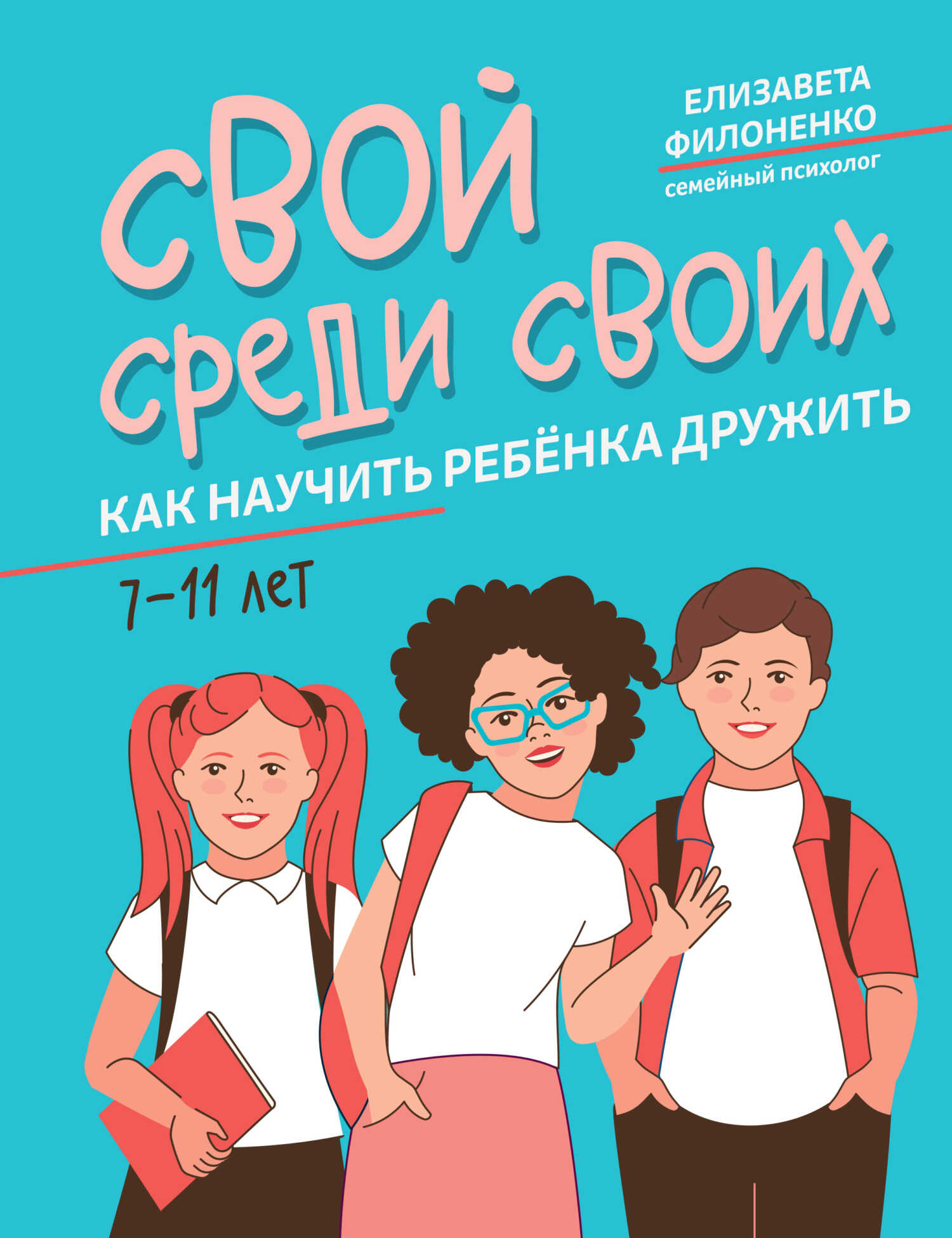Успешные дети. Как помочь своему ребенку сформировать характер победителя - Мишель Борба
Книгу Успешные дети. Как помочь своему ребенку сформировать характер победителя - Мишель Борба читаем онлайн бесплатно полную версию! Чтобы начать читать не надо регистрации. Напомним, что читать онлайн вы можете не только на компьютере, но и на андроид (Android), iPhone и iPad. Приятного чтения!
Шрифт:
Интервал:
Закладка:
131 Andrew Przybylski & Netta Weinstein, “Can You Connect with Me Now? How The Presence of Mobile Communication Technology Influences Face-To-Face Conversation Quality,” Journal of Social and Personal Relationships, 30, no, 3, (2012): 237–246.
132 NPR: All Things Considered: ‘The Shallows’: This is Your Brain Online, June 2, 2010, research from Nicholas Carr, author of The Shallows.
133 Pamela Paul, “Tutors for Toddlers,” TIME, Nov. 21, 2007, http://content.time.com/time/magazine/article/0,9171,1686826,00.html
134 Peter Adamson, UNICEF Office of Research, “Child Well-Being in Rich Countries: A Comparative Overview, Innocenti Report Card II, https://www.unicef-irc.org/publications/pdf/rc11_eng.pdf
135 Thomas S. Dee and Hans Henrik Sievertsen, “The Gift of Time? School Starting Age and Mental Health,” NBER Working Paper No. 21610, Oct 2015, JEL No. I1, I1, https://cepa.stanford.edu/sites/default/files/WP15–08.pdf
136 Timothy J. Layton, “Attention-Deficit Hyperactivity Disorder and Month of School Enrollment,” N Engl J Med, 2018: 2122–2130. DOI: 10.1056/NEJMoa1806828
137 Erika Christakis, “The New Preschool Is Crushing Kids,” Jan/Feb 2016, The Atlantic, https://www.theatlantic.com/magazine/archive/2016/01/the-new-preschool-is-crushing-kids/419139/
138 William Doyle, “This is Why Finland Has the Best Schools,” The Sydney Morning Herald, Mar 26, 2016, https://www.smh.com.au/national/this-is-why-finland-has-the-best-schools-20160325-gnqv9l.html
139 Olivia Goldhill, “Homework Around the World: How Much Is Too Much?” The Telegraph, Mar 25, 2019, https://www.telegraph.co.uk/education/educationnews/11453912/Homework-around-the-world-how-much-is-too-much.html
140 Elsie M. Taveras, et al. “Prospective Study of Insufficient Sleep and Neurobehavioral Functioning Among School-Age Children” Academic Pediatrics, Volume 17, Issue 6, 625–632.
141 June J. Pilcher, Drew M. Morris, Janet Donnelly and Hayley B. Feigl, “Interactions Between Sleep Habits and Self-Control,” Front. Hum. Neurosci, (11) May 2015. https://doi.org/10.3389/fnhum.2015.00284
142 Cari Gillen-O’Neel, Virginia W. Huynh and Andrew J. Fuligni. “To Study or to Sleep? The Academic Costs of Extra Studying at the Expense of Sleep,” Child Development, Aug 2012.
143 Michal Kahn, Shimrit Fridenson, Reut Lerer, Yair Bar-Haim, Avi Sadeh. “Effects of One Night of Induced Night-Wakings Versus Sleep Restriction On Sustained Attention and Mood: A Pilot Study.” Sleep Medicine, 2014; 15 (7): 825 DOI: 10.1016/j.sleep.2014.03.016
144 Boston College: TIMSS & PRLS International Study Center “TIMSS2011” International Association for the Evaluation of Educational Achievement, 2013.
145 Ruthann Richter, “Among Teens, Sleep Derivation an Epidemic,” Stanford Medicine, Oct 8, 2015, https://med.stanford.edu/news/all-news/2015/10/among-teens-sleep-deprivation-an-epidemic.html
146 Rhonda Clements, “An Investigation of the Status of Outdoor Play,” Contemporary Issues in Early Childhood 5 (2004): 68–80.
147 Daniel Goleman, Focus: The Hidden Driver of Excellence. New York: HarperCollins, 2013.
148 Phone interview with Katherine Lewis on August 7, 2019.
149 C. E. Kerr, “Effects of Mindfulness Meditation Training on Anticipatory Alpha Modulation in Primary Somatosensory Cortex,” Brain Research Bulletin 85, no. 3–4 (May 2011): 96–103.
150 A. Moore, T. Gruber, J. Derose, and P. Malinowki, “Regular, Brief Mindfulness Meditation Practice Improves Electrophysiological Markers of Attention Control,” Frontiers of Human Neuroscience 6 (February 10, 2012): 18. Doi:10.3389/fnhum.2012.00018.
151 F. Zeidan, S. K. Johnson, B. J. Diamond, Z. David and P. Gollkasian, “Mindfulness Meditation Improves Cognitive: Evidence of Brief Mental Training,” Consciousness and Cognition 19, no. 2 (June 2010): 597–605.
152 Kimberly A. Schonert-Reichl et al. “Enhancing Cognitive and Social-Emotional Development Through a Simple-to-Administer Mindfulness-Based School Program for Elementary School Children: A Randomized Controlled Trial.” Developmental Psychology, 2015; 51 (1): 52 DOI: 10.1037/a0038454
153 Walter Mischel, The Marshmallow Test: Understanding Self-Control and How to Master It. NY: Bantam Press, 2014.
154 Juliana Menasce Horowitz and Nikki Graf, “Most U. S. Teens See Anxiety and Depression as a Major Problem Among Their Peers,” Pew Research Center, Feb. 20, 2019.
155 Alan N. Simmons, et al. “Altered Insula Activation in Anticipation Of Changing Emotional States: Neural Mechanisms Underlying Cognitive Flexibility In Special Operations Forces Personnel,” Neuroreport, 2012 Mar 7;23(4):234–9. doi: 10.1097/WNR.0b013e3283503275.
156 “Boomerang Generation, Returning to the Nest,” Ameritrade, May 2019, https://s2.q4cdn.com/437609071/files/doc_news/research/2019/Boomerang-Generation-Returning-to-the-Nest.pdf. Survey by The Harris Poll on behalf of TD Ameritrade from February 28 – March 14, 2019, among 3,054 U.S. adults and teens ages 15 and older.
157 Jean M. Twenge, iGen: Why Today’s Super-Connected Kids Are Growing Up Less Rebellious, More Tolerant, Less Happy-and Completely Unprepared for Adulthood. New York: Atria Books, 2017, p 45–46.
158 Schulman, M. and Mekler, E. Bringing Up a Moral Child. Reading, Mass.: Addison-Wesley, 1985, p. 20. “STAR” (Stop, Think, Act Right) developed by Michele Borba, Building Moral Intelligence, San Francisco: Jossey-Bass, 2004.
159 Phelps, No Limits, p. 133
160 Phelps. No Limits, p. 20
161 Phelps, No Limits, p. 146–147
162 Phelps, No Limits, p. 135
163 Margaret Loftus, “How a Gap Year Can Make Students Successful,” US News& World Report, Sep 23, 2014, https://www.usnews.com/education/best-colleges/articles/2014/09/23/how-a-gap-year-can-make-students-successful
164 Kirsten Weir, “The Power of Self-Control,” American Psychological Association, Jan. 2012, Vol 43, No. 1, https://www.apa.org/monitor/2012/01/self-control
165 Description of the history day project from Jack Mayer, Life in a Jar: The Irena Sendler Project. Middlebury, Vermont: Long Trail Press, 2011, pp. 6–7 and personal interview with Megan Stewart Felt in Flint, Michigan.
166 Mayer, Ibid, p. 6–7
167 Mayer, Ibid, p. 336
168 Mayer, Ibid, p. 350
169 Mayer, Ibid, p. 259
170 Descriptions of how Irena Sendler parented from Tilar J. Mazzeo, Irena’s Children: The Extraordinary Story of the Woman Who Saved 2,50 °Children from the Warsaw Ghetto. New York: Gallery Books, 2016.
171 Thomas Lickona, How to Raise Kind Kids: And Get Respect, Gratitude and a Happier Family in the Bargain. New York, Penguin Books, p. 69.
172 Josephson Institute Center for Youth Ethics: “2012 Report Card on the Ethics of American Youth,” Los Angeles, CA: Character Counts, 2012,
173 Rich Jarc. “The Ethics of American Youth: 2010.” Feb. 10, 2011. Josephson Institute Center for Youth Ethics, Apr. 26, 2011, http://charactercounts.org/programs/reportcard/2010/installment02_report-card_honesty-integrity.html
174 “Are today’s kids more self-centered than those of past generations?” MSNBC-Health. 26 April 26, 2011. http://health.newsvine.com/_news/2009/05/05/2779662-are-todays-kids-more-self-centered-than-those-of-past-generations
175 Justin Patchin, “School Bullying Rates Increased by 35 % from 2016 to 2019”; Cyberbullying Research Center, May 29, 2019, https://cyberbullying.org/school-bullying-rates-increase-by-35-from-2016-to-2019
176 Josephson Institute Center for Youth Ethics: “2012 Report Card on the Ethics
Прочитали книгу? Предлагаем вам поделится своим отзывом от прочитанного(прослушанного)! Ваш отзыв будет полезен читателям, которые еще только собираются познакомиться с произведением.
Уважаемые читатели, слушатели и просто посетители нашей библиотеки! Просим Вас придерживаться определенных правил при комментировании литературных произведений.
- 1. Просьба отказаться от дискриминационных высказываний. Мы защищаем право наших читателей свободно выражать свою точку зрения. Вместе с тем мы не терпим агрессии. На сайте запрещено оставлять комментарий, который содержит унизительные высказывания или призывы к насилию по отношению к отдельным лицам или группам людей на основании их расы, этнического происхождения, вероисповедания, недееспособности, пола, возраста, статуса ветерана, касты или сексуальной ориентации.
- 2. Просьба отказаться от оскорблений, угроз и запугиваний.
- 3. Просьба отказаться от нецензурной лексики.
- 4. Просьба вести себя максимально корректно как по отношению к авторам, так и по отношению к другим читателям и их комментариям.
Надеемся на Ваше понимание и благоразумие. С уважением, администратор knigkindom.ru.
Оставить комментарий
-
 Гость Даша11 февраль 11:56
Для детей подросткового возраста.Героиня просто дура,а герой туповатый и скучный...
Лесная ведунья 3 - Елена Звездная
Гость Даша11 февраль 11:56
Для детей подросткового возраста.Героиня просто дура,а герой туповатый и скучный...
Лесная ведунья 3 - Елена Звездная
-
 Гость Таня08 февраль 13:23
Так себе ,ни интриги,Франциски Вудворд намного интересней ни сюжета, у Франциски Вундфорд намного интересней...
Это моя территория - Екатерина Васина
Гость Таня08 февраль 13:23
Так себе ,ни интриги,Франциски Вудворд намного интересней ни сюжета, у Франциски Вундфорд намного интересней...
Это моя территория - Екатерина Васина
-
 Magda05 февраль 23:14
Беспомощный скучный сюжет, нелепое подростковое поведение героев. Одолеть смогла только половину книги. ...
Госпожа принцесса - Кира Стрельникова
Magda05 февраль 23:14
Беспомощный скучный сюжет, нелепое подростковое поведение героев. Одолеть смогла только половину книги. ...
Госпожа принцесса - Кира Стрельникова










